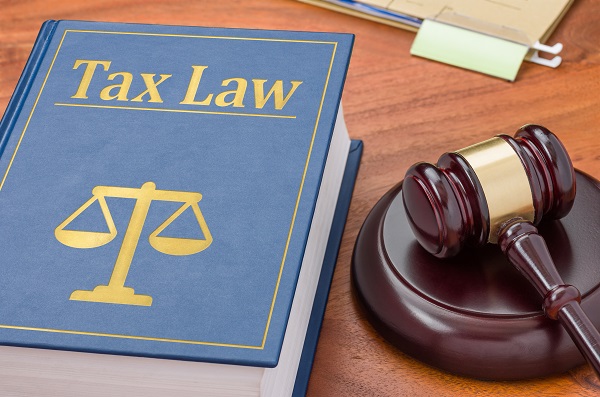Texas has higher property tax rates than most states in the US. The average property tax rate in Texas is 1.69% against a national average of approximately 1.07%. While Texas property taxes are over 57% higher than most states, the state compensates by not charging state or personal income tax. Also, Texas doesn’t charge for residential real estate transfers.
If your assessed property is worth $200,000, you should expect to pay $3,380 in property taxes in Texas against $2,140 annually in other states. What’s more, some counties in Texas have tax rates that are higher than 1.69%. Tarrant County is a good example with a 2.01% property tax. For a $200,000 property the effective annual tax rate is $4,020.
Texas is home to approximately 4,000 local entities counties, cities, and school districts) capable of collecting property taxes.
How are Property Tax Rates Calculated?
Before looking at property rates charged by individual counties or other local entities, it’s important to understand how Texas property taxes are calculated.
Every year, appraisers evaluate all property in Texas. Property tax rates are recalculated based on appraiser findings. Generally, tax rates remain unchanged, and when they change, they do so gradually over several years.
Calculating Property Tax Rates
In Texas, several government entities have an independent role in the collective determination of property tax rates each year. The main entities are appraisal districts, city councils, and school districts. However, the main task of setting tax rates is largely decided by the value set by local appraisal districts.
Step by Step Guide to Calculating Texas Property Tax Rates
Below is a quick guide on calculating Texas property tax rates as per the Texas Tribune.
Step 1: Property Appraisal
The process of calculating tax rates begins with property appraisal. Every county appraisal district determines property value based mainly on market conditions.
Step 2: Contesting
If a property owner doesn’t agree with the value set by the appraiser, they are free to protest to the respective appraisal review board, which will leave the tax rate unchanged or set a new value.
Step 3: Appeal
Property owners can still appeal the board’s decision in court. The process usually results in arbitration or a court trial. The outcome of such processes determines the final property value.
Step 4: Exemptions
Once a final property value is determined, exemptions are deducted. Many property owners in Texas receive various tax breaks ranging from school tax breaks to property tax exemptions based on elderly homeowners (aged 65 and above) as well as disabled property owners.
The final value equals the appraised value minus any exemptions for which you/your property qualifies. Many homeowners can receive breaks on school taxes, while elderly and disabled homeowners can qualify for additional exemptions.
Step 5: Setting Property Tax Rate
After deductions are factored in, tax rates are set. The rates must be adopted by local taxing entities (cities, school districts, counties, etc.). Adoption of new tax rates is done publicly.
Once tax rates are set, property owners can receive their tax bills detailing the value of a property and the respective tax rate. Property owners should pay their property taxes to tax assessor collectors unless the local government collects property tax directly. Tax assessor-collectors send collected tax to the respective local taxing units.
Property tax rates are a % of a home’s appraised value. If the tax rate for the year is 2% and the value of the property in question is $250,000, the total property tax will be $5,000 that year.
Top 20 Counties/Cities with the Highest Texas Property Tax Rates
Below are counties and cities in Texas with the highest property tax rates, according to Smartasset estimates.
- Menard has a 2.07% property tax against a $57,000 mean property value
- Hidalgo has a 2.05% property tax rate against a $84,000 mean property value
- Harris has a 2.03% property tax rate against a $165,000 mean property value
- Williamson has a 2.01% property tax rate against a $245,100 mean property value
- Brazoria has a 2% property tax rate against a $173,900 mean property value
- Bexar has a 1.97% property tax rate against a $152,400 mean property value
- Hays has a 1.97% property tax rate against a $222,300 mean property value
- Rockwall has a 1.95% property tax rate against a $244,400 mean property value
- Wichita has a 1.94% property tax rate against a $96,000 mean property value
- Collin has a 1.94% property tax rate against a $288,900 mean property value
- Dallas has a 1.93% property tax rate against a $161,500 mean property value
- Deaf Smith has a 1.92% property tax rate against a $91,800 mean property value
- Kaufman has a 1.88% property tax rate against a $161,600 mean property value
- Nueces has a 1.87% property tax rate against a $130,700 mean property value
- Kleberg has a 1.85% property tax rate against a $88,200 mean property value
- Bell has a 1.83% property tax rate against a $141,200 mean property value
- Travis has a 1.82% property tax rate against a $298,800 mean property value
- Brazos has a 1.81% property tax rate against a $186,000 mean property value
- Montgomery has a 1.80% property tax rate against a $223,900 mean property value
- Mitchell has a 1.80% property tax rate against a $70,000 mean property value
Counties with the Lowest Texas Property Tax Rates
Ward and Borden have the lowest property tax rates at 0.51% and 0.34%, respectively. Borden and Ward counties have a median property value of $113,100 and $86,100, respectively.
How to Lower Property Tax Rate
Property owners keen on enjoying a lower property tax bill can consider owning property in areas with lower tax rates. Looking for state and local tax exemptions can also help to reduce the resulting tax bill. It also helps to avoid making changes just before a property assessment as this may result in a higher property value and final tax rate.
How to pay high property taxes
If Texas property tax rates are high, resulting in a high tax bills, property owners can consider taking property tax loans to offset the bill.
Texas has good property tax lenders like Property Tax Loan Pros that specialize in giving fast, affordable loans with flexible repayment plans to all types of property owners, including those with bad credit.
CALL – 866-531-7678 or email – info@propertytaxloanspros.com.



